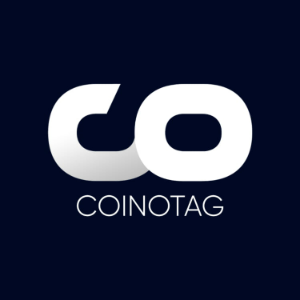Santander explores crypto expansion with early stablecoin initiative
3 min read
Spain’s largest bank, Banco Santander, revealed on May 29 that it is considering advancing in digital assets as European lenders expand deeper into the industry. The firm also said it has early-stage plans to offer a stablecoin as well as access to virtual currencies for real clients of its digital bank. Banco Santander’s move reflects how European banks are starting to warm to crypto following the introduction of the EU’s Markets in Crypto-Assets (MiCA) regulation. The firm’s efforts also echo developments in the U.S., where President Donald Trump has vowed support for the industry, and progress on stablecoin legislation has prompted major lenders to ponder such assets. Santander’s Openbank applies for licenses to offer retail crypto services 🚨 JUST IN: Spain’s biggest bank, Santander, plans to launch a stablecoin and expand crypto services for retail clients via its digital bank Openbank, per Bloomberg. — MrRebel.eth (@rebelethpromos) May 29, 2025 According to a Bloomberg report, Santander’s stablecoin plans are still at an early stage. The report revealed that Banco Santander’s online banking unit, Openbank, has applied for licenses to offer retail crypto services under the European Union’s new regulatory regime. Stablecoins, which are designed to maintain a constant value against a currency like the dollar, have garnered particular interest in banks as alternative payment solutions. The industry has ballooned to $250 billion in value, with Tether Holdings leading the pack as the biggest issuer. The report disclosed that the European lender is exploring offering stablecoins dominated by the euro and the dollar. According to the publication, dollar tokens have become more popular with consumers and businesses in economies with weaker local currencies, including nations in Latin America where Santander has a large customer base. The report also uncovered that Santander is evaluating options, including creating its stablecoin or offering access to an existing token. Crypto traders have mainly used stablecoins to move in and out of positions. Digital assets have also gained interest with consumers and businesses looking to make cross-border transactions and facilitate faster and cheaper digital payments. Stablecoins are also being used by investors looking to trade and settle traditional assets such as bonds using blockchain technology. The Wall Street Journal reported last week that banks, including JPMorgan , Bank of America, Citigroup, and Wells Fargo, were reportedly discussing jointly issuing a stablecoin. The publication also cited that other financial institutions include Early Warning Services, the parent company of digital payments network Zelle, and the payment network Clearing House. Santander’s Openbank operates in several European nations, including Spain, Portugal, the Netherlands, and Germany. The report revealed that Openbank could launch crypto services as soon as this year, but the necessary regulatory approvals are still pending. Deutsche Bank AG’s DWS Group, Dutch market maker Flow Traders, and crypto fund manager Galaxy Digital Holdings have formed a firm to issue a euro-denominated stablecoin. Societe Generale SA’s crypto assets subsidiary also issues a euro-dominated stablecoin. U.S. advances stablecoin GENIUS Act bill 🇺🇸 THE U.S. SENATE HAS OFFICIALLY ADVANCED THE GENIUS STABLECOIN BILL. THIS COULD CHANGE EVERYTHING!!! pic.twitter.com/intCPOaeNi — Kyle Chassé / DD🐸 (@kyle_chasse) May 21, 2025 The U.S. Senate advanced with the stablecoin-regulating Guiding and Establishing National Innovation for U.S. Stablecoins (GENIUS) Act on May 20 with a vote of 66-32. The bill includes a regulatory framework for stablecoin collateralization and mandates compliance with Anti-Money Laundering laws. U.S. crypto czar David Sacks mentioned earlier last week that he expects the stablecoin bill to be passed and will receive bipartisan support. Democrats said they plan to amend the legislation to include a clause prohibiting President Donald Trump and other U.S. officials from profiting from stablecoins. Senator Josh Hawley has also amended the bill to cap credit card late fees, which would cost the legislation support from industry allies. In March, Trump’s family-backed World Liberty Financial also created its stablecoin called USD1 . The project revealed that the token is backed by U.S. Treasuries and dollar deposits and has received a $2 billion investment commitment from Abu Dhabi’s MGX fund through Binance. New York University professor Austin Campbell said in May that the U.S. banking industry is panicking over the rise of yield-bearing stablecoins, which threaten their profit model. The professor criticized the banking industry for pressuring lawmakers to defend their interests and block competition from interest-paying stablecoins. Cryptopolitan Academy: Tired of market swings? Learn how DeFi can help you build steady passive income. Register Now

Source: Cryptopolitan



